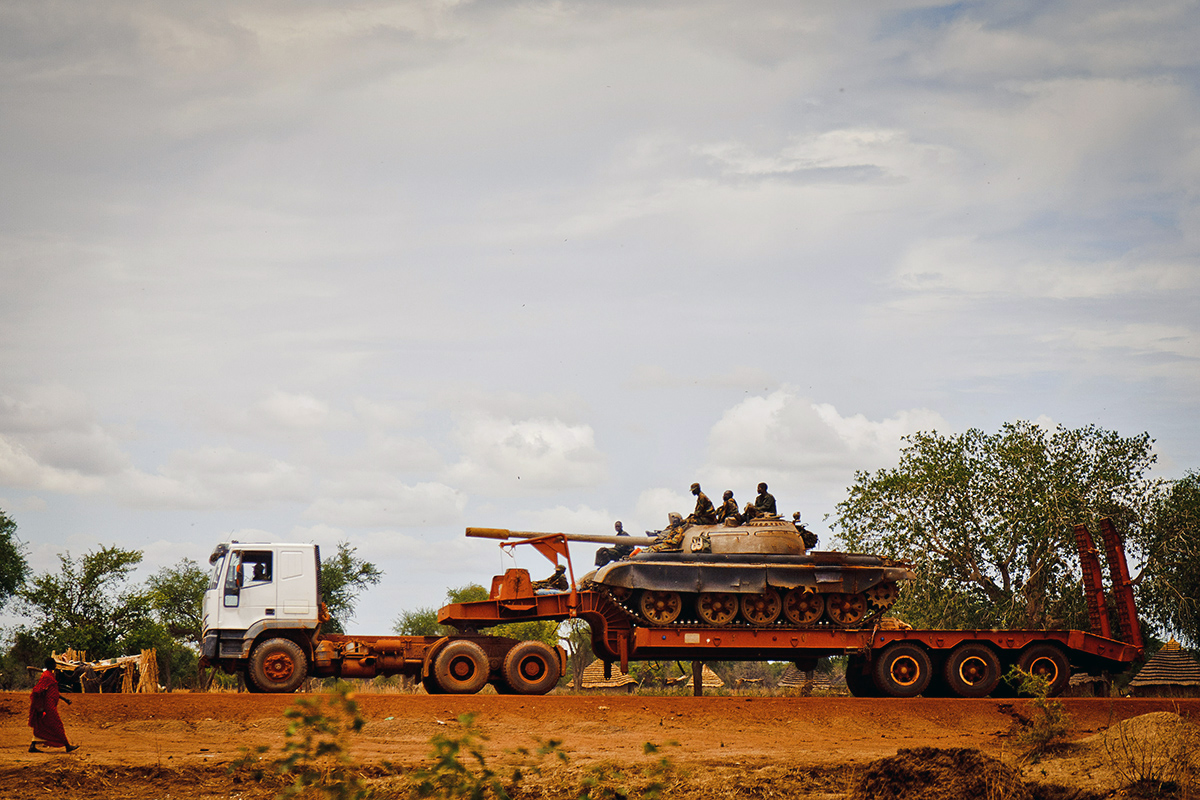In Juba, wartime campaigns have begun as the IGAD delegation visited Machar at an unknown location in South Sudan. The UN estimates of displaced persons in South Sudan has risen sharply. Bentiu has been reclaimed by the SPLA, so the government now controls Unity State. Bor is the only important position remaining in rebel hands.
In Juba a mobilization and donation campaign has been begun which will recruit young men, women and ex-combatants to join the SPLA and fight rebels. The campaign will also raise money to send to the front lines. Government staff will contribute, according to their station, with the highest agent paying $500 or $1000 dollars.
A blood donation campaign, too, has been initiated by the Indian Association in Juba.
IGAD members have visited Riek Machar at Machar’s hideout in South Sudan. The IGAD members were accompanied by U.S., U.K., and Norwegian envoys and met Machar over the question of delayed peace talks. The IGAD members have returned to Ethiopia since visiting Machar. The delegation to Machar found that Machar was willing to sign a cessation of hostilities, but that Machar maintained his precondition that the political prisoners be released by Kiir.
Other of Machar’s reservations about signing a ceasefire include the Ugandan military presence in South Sudan and the question about whether a ceasefire would be respected if it were signed.
“I think that we were not closer to a deal because apparently they have played down the importance of releasing the political detainees and also they have played down the importance of the fact that there is an invasion from Uganda of South Sudan,” said Machar.
The allegations that Uganda is acting militarily in South Sudan have been denied by Uganda. The U.S., too, at a recent Senate Committee on South Sudan did not describe Uganda’s actions in South Sudan as particularly military. The U.S. described the Ugandan military in South Sudan as having come at the request of South Sudan and tasked with protecting infrastructure, the airport, Juba road, and Ugandan citizens in South Sudan. The U.S. did note, however, that Uganda was prepared to aid South Sudan militarily.
The IGAD delegations had met President Kiir on January 7 and 8 to talk about the peace negotiations. Kiir was firm on his refusal to release the political prisoners.
The U.S. and other international players in South Sudan have urged Kiir to release the political prisoners immediately. The U.S. State Department’s Marie Harf stated, “We do believe that to be meaningful and productive, senior SPLM members currently detained in Juba need to be present for discussions on political issues which are happening in Addis.”
South Sudanese Information Minister Makuei Lueth responded by saying that the prisoners were arrested and charged, and could not just be released without completing legal procedures.
The number of displaced persons has risen to nearly 400 000 since the conflict broke out December 15, according to UN estimates. The estimate of war dead has been pegged at 1000. That number has not changed since the first week of fighting, and commenters have noted that the current number must be much higher.
The UN houses 60 000 IDPs in UN compounds. The UN force in South Sudan is in the process of being doubled. The decision to double the force was made in the early weeks of the conflict, but redeploying UN peacekeepers has taken some time. So far only a small fraction of the nearly 7000 new UN staff have arrived.
Bentiu, capital of oil producing Unity State, was retaken by the government Friday after hours of fighting. The SPLA took 10 tanks and other vehicles as part of their victory.
Lul Ruai Koang, spokesperson for the rebels, stated that the battle was a “tactical withdrawal to avoid casualties.”
With the rebels out of Bentiu, only Bor is left as a major rebel stronghold. Bor is the capital of Jonglei State and is 125 miles (200 kilometers) north of Juba. The SPLA stated it was positioned and ready to retake Bor.
The SPLA has been fighting rebels just south of Bor.
By Day Blakely Donaldson
Sources:
